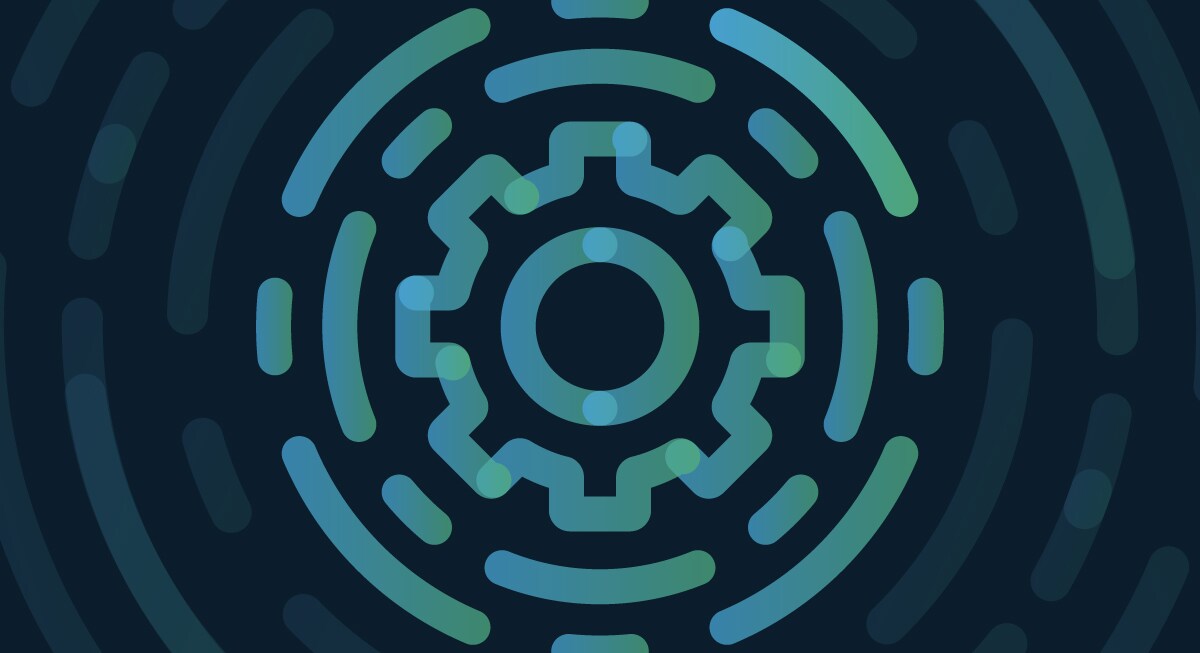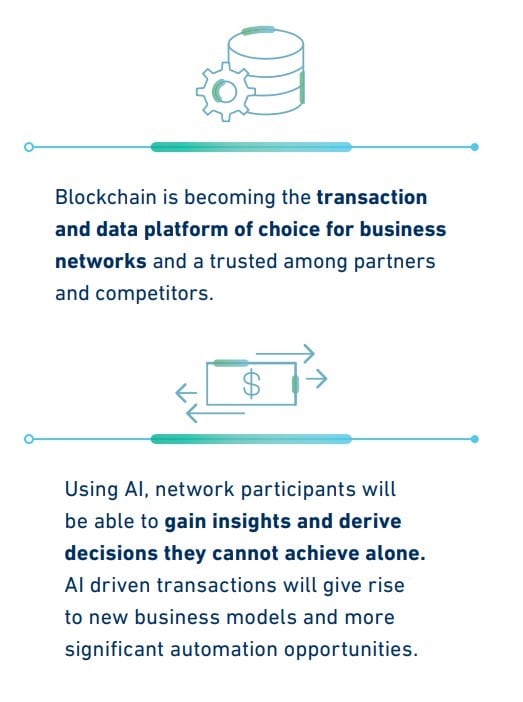Insights
Blockchain at the nexus of artificial intelligence

We explore how AI and blockchain technology can be used together, as well as examine their impact on the financial services industry.
October 2023

Nitin Gaur
Global Head of Technology and Asset Design, State Street Digital®
Blockchain stands to accelerate the adoption of emerging technologies including artificial intelligence (AI), cloud and Internet of Things (IoT) by bringing in the missing element of trust, which is required by businesses to fully embrace these technologies at scale. On the other hand, blockchain business networks stand to benefit from the integration of these technologies into modern blockchain platforms and applications.
In recent years, AI and blockchain have made significant strides in revolutionizing the financial services industry. While AI has demonstrated its prowess in data analysis, pattern recognition and decision-making, blockchain has emerged as a transparent, secure and decentralized ledger system. When these two powerful, ground-breaking technologies converge, they create a potent combination that holds immense potential for transforming the financial services sector. In this article, we explore the use of AI in conjunction with blockchain technology, and their impact on financial services.
We rely on the following assumptions around blockchain technology and the applicability of AI technologies:

The synergy: Blockchain and AI
While both blockchain and AI offer unique benefits, they also present their own adoption challenges. Bringing these two technologies together may seem like mixing information technology (IT) pixie dust, especially given the unprecedented hype surrounding them individually. However, there is a logical and pragmatic way to approach their convergence. Currently, AI is predominantly a centralized process, requiring users to have unwavering trust in a central authority to produce reliable business outcomes. By decentralizing the three essential elements of AI – data, models and analytics – blockchain can provide the trust and confidence necessary for end users to fully adopt and rely on AI-based business processes.
Here’s a look at how blockchain can enrich AI by bringing trust to data, models and analytics:
Data ownership
Many prominent AI technology services are centralized, and establishing trust among users has been a challenge. Blockchain can act as a digital rights management system, enabling users to license their data to AI providers under specific terms, conditions and durations. The blockchain ledger serves as an access management system, storing proof and permission for businesses to access and utilize user data.
Trusted AI models
Blockchain technology can ensure the provenance and traceability of training data and models for machine learning. By tracking the origin of training data and maintaining an audit trail, businesses can provide transparent evidence of why a particular fruit, for example, is classified as an apple or an orange. This capability safeguards against manipulations and ensures trust in AI models.
Explaining AI decisions
Blockchain can help bring transparency and understanding to AI outcomes and decisions. By recording decisions and associated data points on a blockchain auditing becomes simpler, and the inherent attributes of blockchain contribute to building trust within the network. The European Union has enforced a law requiring machines’ decisions to be explainable, imposing fines for non–compliance.
Exploring use cases that unlock the potential of these disruptive technologies
By combining AI and blockchain, financial institutions can unlock even greater possibilities. We identify some key areas wherein their collaboration can create significant value:
1. Fraud detection and prevention
AI algorithms can analyze transaction data and patterns in real time, flagging suspicious activities. These alerts can then be recorded on a blockchain, creating an immutable trail of potential fraud attempts. This synergy provides an enhanced layer of security, reducing financial risks for both customers and institutions.
2. Know Your Customer (KYC) compliance
AI–powered facial recognition and natural language processing can facilitate efficient and accurate KYC processes. When combined with blockchain, customer identity verification can be stored securely and shared across institutions, simplifying compliance procedures while maintaining data privacy.
3. Smart contracts and automation
Blockchain’s smart contract capabilities can be combined with AI to automate complex financial agreements, reducing administrative costs and improving efficiency. AI algorithms can analyze contractual terms, identify risks and suggest modifications, ensuring contractual compliance and minimizing disputes.
4. Decentralized credit risk analysis
AI algorithms can leverage transactional data, social media activity and other non–traditional data sources to assess creditworthiness. Storing credit scores and transaction histories on a blockchain enables decentralized access to credit information, empowering individuals and businesses with better financial opportunities.
Conclusion
The convergence of AI and blockchain holds tremendous potential for enhancing financial services and other industries. By combining the trust and security offered by blockchain with the analytical capabilities of AI, businesses can unlock new opportunities for innovation, efficiency and automation. It is crucial to address challenges such as data privacy, regulatory compliance and interoperability to fully realize the benefits of this synergy. Financial institutions that embrace the integration of AI and blockchain will be well-positioned to thrive in a rapidly evolving technological landscape.



